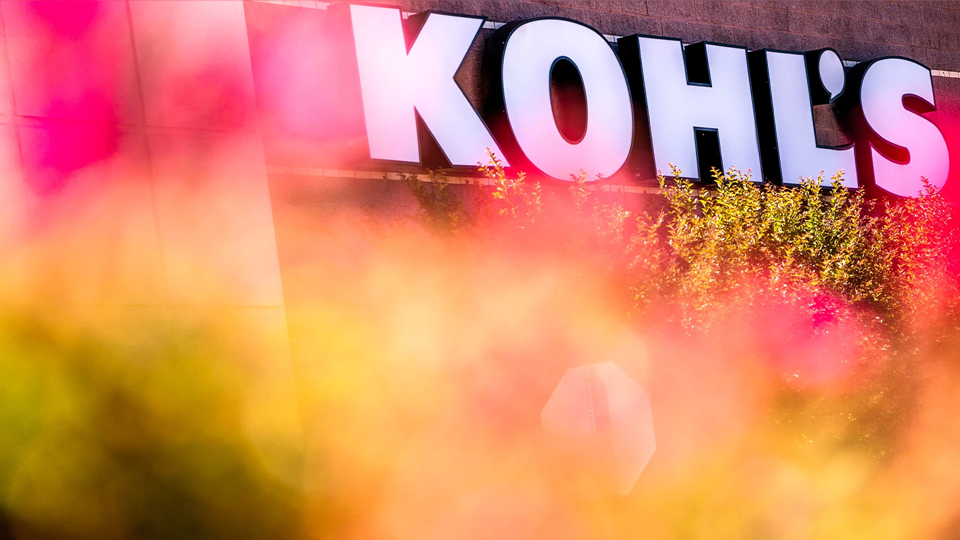‘We are not satisfied’: Kohl’s stock tumbles amid slumping sales and gloomy forecast for 2024
The department store chain said its outlook for the full year is not great. To top it off, the company is losing its CEO.
In the days before Thanksgiving, retail investors want reasons to be hopeful—after all, we’re about to enter the busiest shopping period of the year.
But for Kohl’s investors today, that hope seems to be in short supply. The department store chain’s stock (NYSE: KSS) is plummeting in early trading in the wake of some worrisome news. As of the time of this writing, KSS shares are down a dizzying 20%.
What’s driving the selloff? There are a few likely factors. Here’s what you need to know.
Kohl’s is replacing its CEO
(December 20, 2024), Kohl’s Corporation announced that its current CEO, Tom Kingsbury, will step down on January 15 and be replaced by Michaels Companies CEO Ashley Buchanan.
Kingsbury became the interim CEO of Kohl’s in 2022 and shortly after agreed to become its permanent CEO through May 2025, when he was set to retire.
“Under his leadership, the company is undergoing a transformation to elevate its product portfolio, enhance the store experience and improve its long-term financial health and profitability,” Kohl’s board chain Michael Bender said in a statement.
No reason was given for why Kingsbury is stepping away from the role five months ahead of time, though it could have to do with helping for a smooth transition. Kohl’s says Kingsbury will stay on as both a member of the board and to advise new CEO Buchanan until his scheduled retirement in May.
As for Buchanan’s hiring as CEO, Bender lauded his “vast retail experience leading operations, merchandising, and e-commerce at Walmart and his past five years as CEO of Michaels” in which he improved cash flow and introduced new ways to leverage e-commerce.
However, while a CEO transition always causes uncertainty to rise in investors, it’s likely not the big driver behind today’s KSS share price fall.
Kohl’s reports disappointing Q3 results
Today, Kohl’s reported its third-quarter financial results—after which the stock price really tumbled.
For its Q3 2024, Kohl’s said net sales decreased 8.8% year-over-year. The company brought in $3.5 billion for the quarter, and comparable sales were down 9.3%. Net income was just 20 cents per diluted share, or just $22 million. That’s compared to 53 cents per diluted share, or $59 million, in the year-earlier period.
“We are not satisfied with our performance in 2024 and are taking aggressive action to reverse the sales declines,” Kingsbury said in an earnings release. “We must execute at a higher level and ensure we are putting the customer first in everything we do. We are approaching our financial outlook for the year more conservatively given the third quarter underperformance and our expectation for a highly competitive holiday season.”
Forecast for the full year looks grim
Worse than the disappointing quarter was the company’s full fiscal 2024 outlook. Kohl’s says it expects net sales for the year to fall between 7% and 8%, comparable sales to fall between 6% and 7%, and to have a full-year diluted EPS in the range of $1.20 to $1.50.
The company noted that its fiscal 2024 had only 52 weeks, whereas its fiscal 2023 had 53 weeks, meaning last year, the company had one more week to generate sales. Yet investors hardly seem to have cared about this. The stock sank after the results were announced.
KSS shares have had a horrible 2024
As of the time of this writing, KSS shares are hovering around $14.56, down about 20% since the opening bell. While that is a dismal fall, it’s not even close to how far KSS stock has fallen since the year began.
Kohl’s shares are now down over 50% since the beginning of the year. The last time KSS shares reached these lows was in the early months of 2020, when pandemic lockdowns kept people from going into stores. Prior to the pandemic dips, KSS shares haven’t been this low since the late 1990s.
Kohl’s was founded in 1962. Since then, the company has grown its footprint to over 1,100 stores across 49 states. The company went public in 1992.
ABOUT THE AUTHOR
(17)



